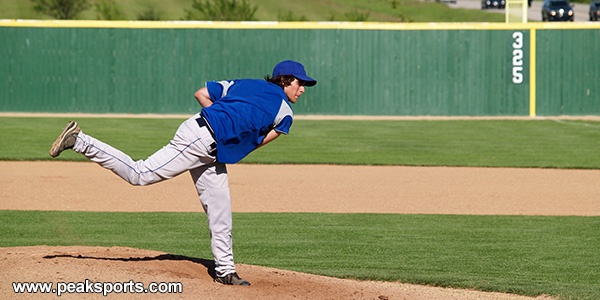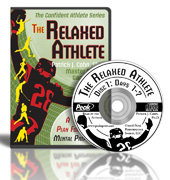
Are You Struggling with Keeping your Confidence at a Consistent Level?
Are you highly self-critical after a competition?
Does your confidence drop after competing?
Many athletes pick apart their performance, no matter how well they perform.
These athletes create a mental laundry list of every little aspect they didn’t perform at the highest level.
You don’t need to be a perfectionist to be highly self-critical. The point is that most athletes ignore the positive and highlight the negative.
When you don’t see the whole picture or evaluate your performance objectively, your confidence will be adversely affected.
Let’s look at how harsh self-evaluations affect confidence.
Perhaps you had a coach or your parents nag you after a competition and point out your mistakes.
You may have achieved a personal best, beat a rival, or made the semi-final, but you were told, “If you did this better, you would have achieved that.”
Unfair assessments of your performance hurt your confidence.
However, many athletes do the same thing to themselves.
A negative assessment is short-sighted. Partial assessments rarely provide feedback on how to improve your game.
How to effectively assess performance after a competition
Here’s an effective assessment model. After each competition, ask yourself the following four questions:
1. What did I do well? When you identify positive aspects of your performance, you reinforce those actions in future competitions.
2. What needs improvement? When you recognize areas that need to be improved, you gain a clear sense of focus for future training or practice sessions.
3. What is my plan for improvement? An action plan provides directions for how you intend to work on these areas.
4. What are the three biggest successes of my performance? When you highlight your accomplishments, you keep your confidence high.
Objective evaluation of competitive performances helps you maintain confidence and sustain motivation to improve your game.
How do elite athletes evaluate performance?
Elite athletes achieve elite status because they see the good and not-so-good in their performances.
For example, Leanne Wong won the all-around competition and the balance beam and vault titles at the 2022 U.S. Classic. Wong was a 2020 U.S. Olympic alternate and reigning world all-around silver medalist and is gearing up for another Olympic run.
While Wong won, she still has room for improvement.
She fell on uneven bars while attempting a new skill and committed a line violation on her second vault attempt.
Chelsie Memmel, technical lead for Team USA’s women’s program, and Wong viewed the whole picture when evaluating her performance.
MEMMEL: “Saw a lot of things that need improvement, beam being one of them. Beam is a little rough, has been a little rough. We definitely have work to do, but I’ve seen a lot of good things and think we are in a good place moving forward.”
As you can see, Wong and Memmel identified successes and areas of improvement and saw Wong moving in the right direction.
Objectively evaluating your performance is a mental skill that produces better performances and improved confidence.
Tip for Evaluating Performances Objectively:
Create a performance evaluation notebook. After each performance, ask yourself these four questions:
* What did I do well?
* What needs improvement?
* What is my plan for improvement?
* What are the three biggest successes of my performance?
By writing your answers in a notebook, you will be able to see your progress throughout the season and build your confidence throughout the year.
For all our confidence-building strategies, check out “The Confident Athlete” audio program on CD or digital download…
Related Sports Psychology Articles
- The Mindset to Perform at a Higher Level
- Having Fun While Performing at Your Best
- The Importance of Mental Toughness
*Subscribe to The Sports Psychology Podcast on iTunes
*Subscribe to The Sports Psychology Podcast on Spotify
Download a free sports psychology report to improve your mental game!
Learn more about our one-on-one mental game coaching.

The Relaxed Athlete
You can possess all the physical talent in the world, the best equipment money can buy, and train harder or longer than anyone else in your sport or on your team, but if self-doubt enters your mind prior to competition, you simply will not realize your true potential in sports.
The Relaxed Athlete” audio and workbook program teaches you mental strategies to develop a focused and confident pregame routine for a poised and relaxed mindset. Learn how to get your mind right by overcoming pregame anxiety and worry.
